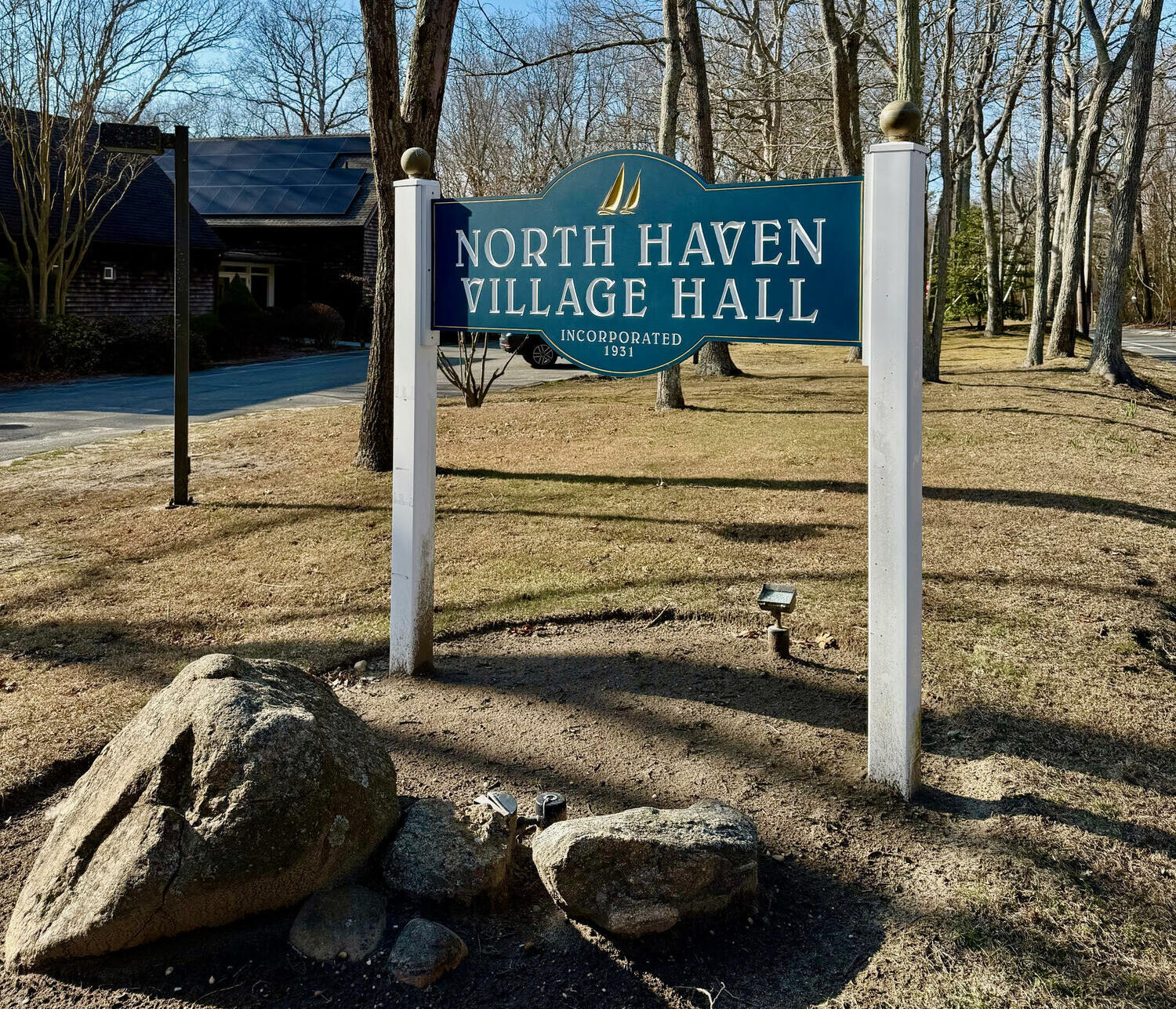
If one thing could be gleaned from an hour-long discussion on the topic of cell service that was hosted by the North Haven Village Board on April 16, it would be that the idea of erecting a 110-foot-tall cellular tower behind Village Hall is probably dead on arrival.
Otherwise, the dozen or so residents who gathered in person and via Zoom to discuss the issue had widely differing views of what should or shouldn’t be done.
Last week’s public discussion followed a board work session to review a cell coverage study recently completed by CityScapes, a consulting firm that has worked with other East End communities and offered them suggestions for how cell coverage could be improved.
The village streamed a CityScapes webinar on the topic last month, and sought public feedback through a survey that was completed by 157 of the village’s estimated 900 residents.
The CityScapes consultants informed the village that it had three options to improve cell coverage. The first would be to erect a large monopole behind Village Hall. Even better coverage could be had, the village was told, if an additional four micro-poles, which would look similar to standard utility poles, were erected at specific locations around the village. A third option would be to do away with the tower behind Village Hall altogether and instead erect 11 micro-poles in key locations.
Village officials said they were surprised to learn from CityScapes that four major cellular companies, Verizon, AT&T, T-Mobile, and Dish, have been working on plans to improve their service in communities on the East End, including North Haven. They were further surprised to learn that New York State law allows cellular companies to erect micro cell towers in the rights-of-way of state highways such as Route 114. Furthermore, companies are not required by the state to share towers, so instead of 11 utility-sized poles, the village is looking at the potential for as many as 44 such towers being erected along the highway or on other properties, where they can obtain permission.
Mayor Chris Fiore said the village was hoping to stave off a free-for-all. “We want to get involved with the design, we want to get involved with what their plans are for our village,” he said. “We are hoping they will accept our input, but they are not obligated — that’s the key.”
A handful of residents, including Susan Reed, a resident of North Haven Manor, said they supported the village’s efforts to improve cell service. Reed called the need for better cell coverage “a critical health and security issue” and recounted that she had a health issue and “I couldn’t call my neighbor, let alone an ambulance.”
Trustee Terie Diat, who also lives in North Haven Manor, also recounted a medical emergency at her home. “We lost precious minutes trying to contact EMS,” she said, “all because we don’t have cell service.”
But others said they didn’t want cell antennas — even the smaller ones that can be mounted on utility poles — anywhere near their homes.
David Casciano, a resident of Ferry Road, said he understood the need for cell service during emergencies, but added that he wanted the village to preserve its rustic appearance and said he didn’t want a tower near his home. Casciano said maps included in the consultants’ study were difficult to read but “to the best of my ability, there would be one at the end of my driveway.”
That feeling was echoed by Lori Barbaria who also lives on Ferry Road. “I’m very concerned about putting any kind of transformer in front of my house,” she said. “I’ve done a lot of research on the health issues of radioactive cell-rays and I don’t feel good about it at all.”
Monica Caan, a resident of Stock Farm Lane, said her own cell coverage was fine, but she added that she was “vehemently” opposed to the construction of a tower behind Village Hall.
“We aren’t saying no cellphone coverage,” she said. “We are all for compromise and options. We just don’t want a giant cell tower that is going to cause diseases and affect the flora and fauna anywhere near Village Hall.” Instead, she suggested it be constructed at Lovelady Powell Park or North Haven Manor, “but not in our backyard.”
Caan also appeared to question if there were that many people in North Haven who had experienced trouble dialing 911 on their cellphones.
“I’d like to know, do the police or ambulance have any record of people passing out or dying because they couldn’t get through to 911?” she asked. “I’d like all those people who say they can’t get through specifically to 911 to come forward.”
She suggested that the village residents could pool their money to buy those who were truly in need satellite phones or help them install boosters in their homes to improve service.
Village resident Jessica Van Hagen also questioned how many people in the village actually have trouble with dropped calls and suggested a grassroots effort to solve the problem. “You could give me a list of 50 people and I could call” to help them search for ways to improve their coverage, she told the board.
Trustee Claas Abraham said that cell companies are not that concerned about providing better coverage for residents than “the 8,000 or 9,000 cars going down Ferry Road every day.”
Both Van Hagen and Caan told the board that rapid advances in technology made it likely that cell towers would be obsolete in a few short years.
The board took no action on the comments, although Fiore stressed several times that the village will do its utmost to get cell companies to listen to its concerns.
“There is no guarantee they would agree to anything. They have complete state authority to put whatever they want in the state right-of-way,” he said. “So we are going to try to influence them and control that, so wish us luck.”